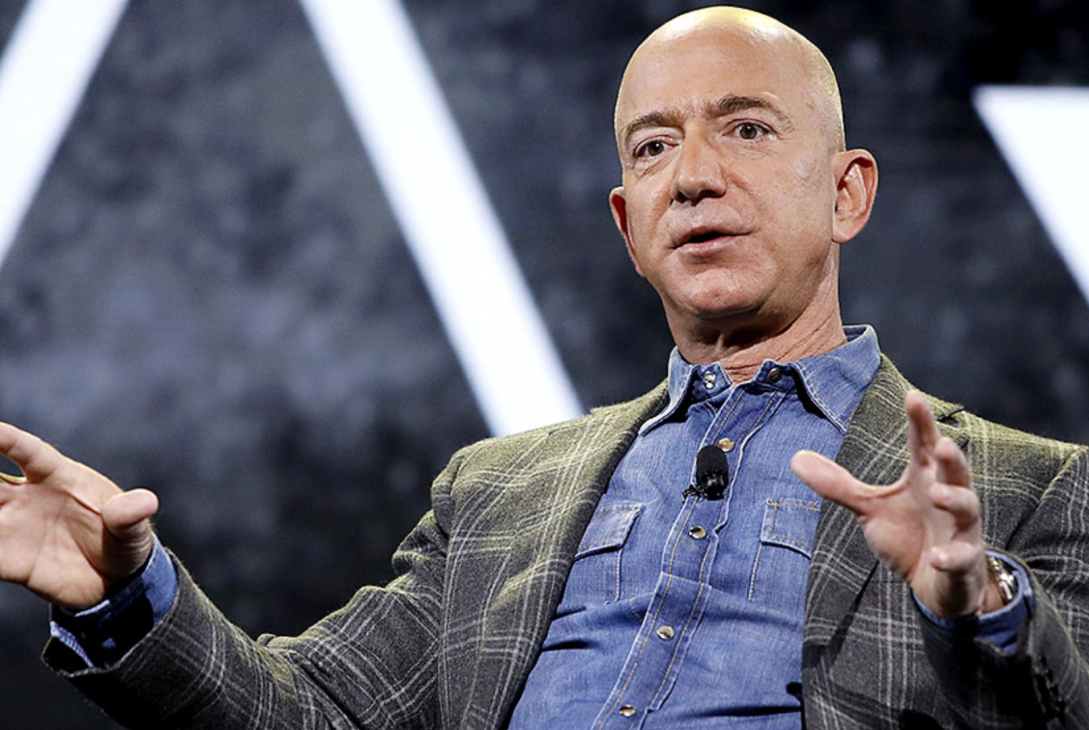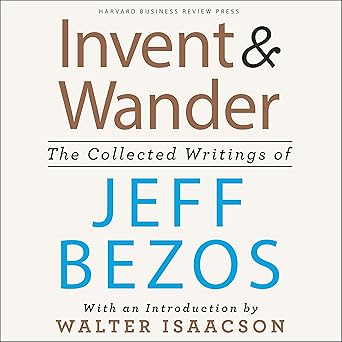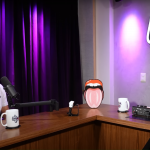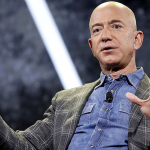Few business leaders have stirred equal parts awe, skepticism, and fascination as Jeff Bezos. Over the decades, he has moved from founding Amazon in a Seattle garage to launching rockets through Blue Origin, owning The Washington Post, and becoming a symbol of modern technological ambition. Yet behind the public image of success lies a man who has made startling confessions and, in a recent interview, revealed a sweeping blueprint for humanity’s future—one that has both energized and alarmed his admirers.
Early Confessions: The Man Behind the Mask
Bezos has long been a figure of calculated vision, but his more candid statements offer a glimpse into the emotional and psychological underpinnings of his success. In interviews over the years, he has admitted to fears, uncertainties, and pivotal moments of doubt.
One particularly memorable confession was made during a 1999 interview (later recounted in outlets) where Bezos recounted a traumatic incident from his youth: while working with his grandfather on a ranch in Texas, his grandfather’s thumb was nearly severed. The story goes that in rage and disgust he threw the mangled flesh into the brush and later drove himself to the hospital, refusing to retrieve it. (This anecdote was recounted in a Summit LA “fireside chat” session, years later, in which Bezos and his brother Mark reminisced about their upbringing.) summit.co+1 Bezos has linked that story to his own capacity for emotional toughness, resourcefulness, and self-reliance. Inc.com+1
Over the years, Bezos has also spoken about the mental framework he uses when making major life decisions. In an oft-quoted reflection, he described operating under a “regret minimization framework” — asking himself whether, years later, he would regret not having tried something. While many have repeated this idea (often citing transcripts or interviews), it gives insight into how he structures risk and ambition internally.
These confessions—of pain, of fear, and of how he deals with them—shine a light on the person beneath the public persona. But it is in his more recent interviews that Bezos has revealed a far more audacious vision: the way he truly thinks about transforming not just a company, but human society as a whole.
The Shocking Interview That Stirred His Fans
In October 2025, during Italian Tech Week in Turin, Jeff Bezos gave a wide-ranging public talk with John Elkann (Chairman of Stellantis and Ferrari) that captured global attention. The conversation, documented and transcribed in outlets such as SingjuPost, ventured beyond the usual business talk, and into Bezos’s vision for infrastructure beyond Earth. singjupost.com+1
One of the more startling proposals Bezos made was his prediction that, in the next 10 to 20 years, humanity will build gigawatt-scale data centres in space. In his view, such orbital data infrastructure would outperform terrestrial data centers thanks to 24/7 exposure to solar energy, no weather disruptions (no clouds, rain, or storms), and better energy efficiency. He said:
“These giant training clusters, those will be better built in space, because we have solar power there 24/7. There are no clouds and no rain, no weather. We will be able to beat the cost of terrestrial data centers in space in the next couple of decades.” UNILAD Tech+2singjupost.com+2
That statement alone was enough to astonish many — not only for the technical boldness, but for what it implied: Bezos sees Earth-based infrastructure as a temporary staging ground. He is already planning for industries and systems to shift off-planet.
In the same interview, he extended that logic to a grander plan: shifting energy-intensive, resource-hungry industries into space, thereby relieving Earth of their environmental burden. He pointed out that satellites, weather and communication platforms already exist in orbit, and that expanding to advanced infrastructure is a logical next step. singjupost.com+3Reuters+3singjupost.com+3
Bezos also cautioned about the risks of speculative bubbles, particularly in AI. He compared the current surge in AI investment to internet bubbles of the past, saying it is “an industrial bubble” where valuations may be detached from fundamentals — but argued that such bubbles can yield lasting innovation. singjupost.com+3Business Insider+3Financial Times+3
His remarks provoked strong reactions. Some fans called it visionary, calling Bezos a modern Prometheus pushing humanity into its next stage. Others called it hubristic and dangerously detached from the political, social, and engineering challenges of space infrastructure.
Laying Bare the Grand Plan: Transforming Earth Through the Heavens
What was most striking was not just the bold predictions, but the underlying logic of Bezos’s grand plan. Pieced together from his various statements and writings, the architecture of his vision might be summarized as follows:
- Step one: Solve Earth’s infrastructural limits via off-planet expansion.
Bezos reasons that Earth’s existing energy, material, and environmental constraints will steadily worsen as digital demand (especially AI, data, computing, cooling) explodes. To avoid collapsing under the weight of its own infrastructure, humanity must begin to shift parts of that infrastructure to space. The orbital data centre concept is his leading proposal. Reuters+2singjupost.com+2 - Step two: Use space as a buffer and industrial frontier.
Heavy industry, high energy use manufacturing, and even certain kinds of computing could move to orbital or lunar platforms. Bezos has previously floated the notion of “moving industry off world to save Earth.” Vanity Fair+2Vanity Fair+2 He imagines a future in which Earth becomes a preserved “residential planet,” while bulk industrial work happens away from our fragile biosphere. - Step three: Diffuse benefits back to Earth.
The profits, energy surplus, innovation, and knowledge gained off-planet would feed back into improvements on Earth — from climate remediation, resource recycling, and more computing capacity. In Bezos’s logic, the orbital infrastructure is not an escape, but a complement. It enables Earth to become less burdened by heavy industry, giving humanity room to thrive. - Step four: Long-term survival, expansion, and resilience.
Bezos has often spoken of “long-term thinking” as a lever. In his public remarks, he invoked multi-century and even millennial projects. In the Summit fireside chat, he spoke of a 10,000-year clock, built inside a mountain, that would tick once a year and chime once a century — a symbolic gesture to break free from short-term horizons. summit.co+2summit.co+2 This kind of deep temporal thinking underpins his ambition to imagine humanity’s multi-planet future.
Seen through this lens, his shocking interview is not a standalone proclamation, but a public unveiling of a secret blueprint he has long gestated.
Why It Shocks — And Why It Resonates
Why did this interview spark shock and fervor? Because it challenges basic assumptions about our relationship with Earth, infrastructure, industry, and the limits of technology. Bezos is not merely launching rockets; he is proposing a rewrite of where—and how—human civilization will root itself.
Yet the audacity is matched by credibility: Bezos has deep pockets, decades of leadership in Amazon, first-hand space ambitions via Blue Origin, and an ability to marshal talent. For many, this makes his vision plausible — even if currently distant. For critics, however, the plan raises profound ethical, political, and logistical questions:
- Who controls the infrastructure of space?
- How do we prevent inequality or monopoly in orbital systems?
- What about sovereignty, international law, space debris, safety, and resource rights?
- Can the engineering, launch, maintenance, and supply chains required be made robust and cost-effective?
These concerns are not new, and Bezos’s statements have invited them. But by speaking so openly, he has forced his audience — fans, detractors, regulators — to confront the implications.
The Throughline: Confession, Ambition, and Vision
The arc from Bezos’s early confessions to his latest public vision reveals a consistent pattern: he does not present himself as omnipotent. He acknowledges uncertainty, failure, personal risk, and emotional complexity. Yet he uses those confessions as a foundation for disciplined ambition.
In his shareholder letters and speeches, he often emphasizes that decisions cannot be perfect, that failure is inevitable, and that one must have clarity of mission and patient time horizons. (These themes are brought together in his collection Invent and Wander.) paulfoh.substack.com+3store.hbr.org+3oreilly.com+3
Thus, his recent interview should not be dismissed as a showpiece or marketing stunt. It is an invitation: he is announcing a direction not just for his companies, but for how he hopes humanity might evolve — to think bigger, farther, and over centuries rather than quarters.
A Book to Explore the Mind Behind the Vision
If you wish to understand more deeply how Bezos thinks — the tension between practical business execution and cosmic vision, the personal revelations behind public ambition — then a strong entry point is his book:
Invent and Wander: The Collected Writings of Jeff Bezos
This collection brings together Bezos’s annual shareholder letters, selected essays, speeches, interviews, and reflections. Edited and introduced by Walter Isaacson, it offers a rare look at the internal logic and evolving philosophy of one of the world’s most consequential figures. Wise Words+3store.hbr.org+3oreilly.com+3
In Invent and Wander, you can trace Bezos’s evolving thought: his early passion for long-term projects, his risk tolerance, his view of customers, his belief in failure as learning, and how he folds those beliefs into a broader vision of humanity’s technological future.
If you are intrigued by Bezos’s confessions, the shocking interview, or his blueprint to transform the world — reading this book is a compelling next step. (You can find Invent and Wander on major U.S. and U.K. book sites, including Amazon.com and Harvard Business Review Press.)
If you’re eager to learn more, don’t miss your chance to get Jeff Bezos’ book from us — a must-read for anyone who wants to think big, innovate boldly, and build the future.
Invent and Wander: The Collected Writings of Jeff Bezos, with an Introduction by Walter Isaacson
In Jeff Bezos’ own words, the core principles and philosophy that have guided him in creating, building, and leading Amazon and Blue Origin.











